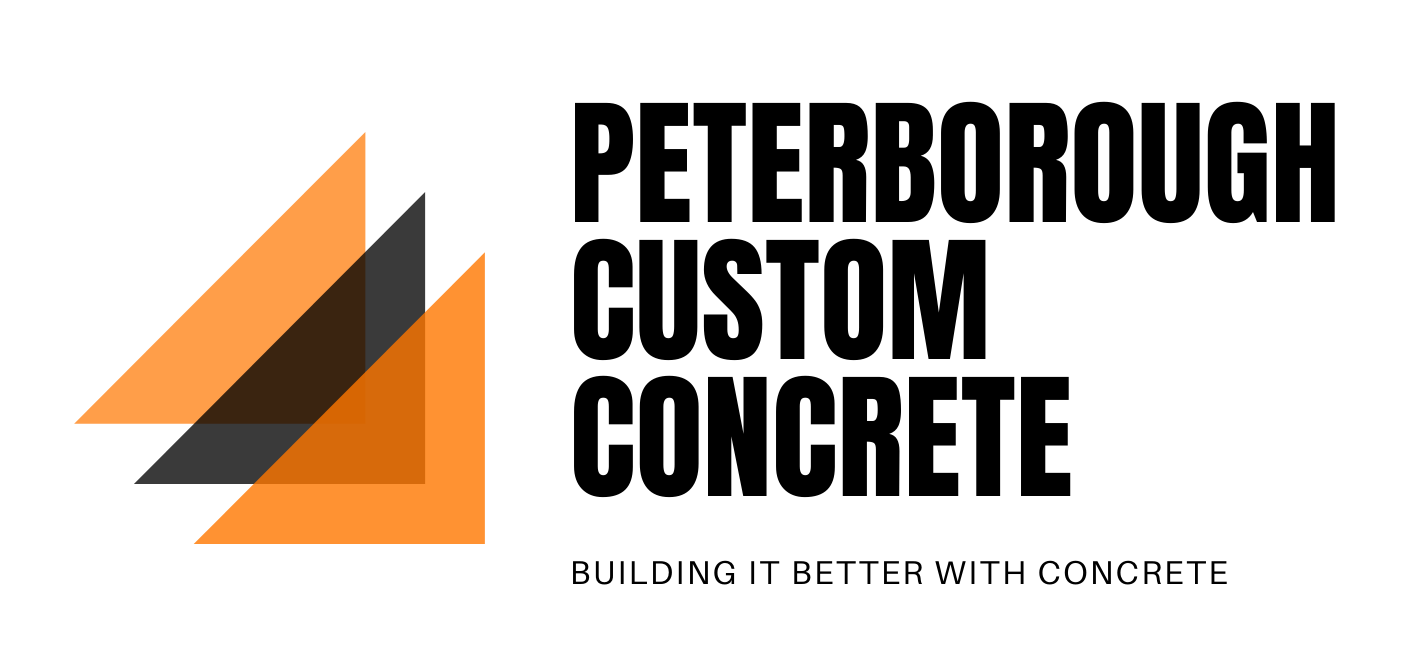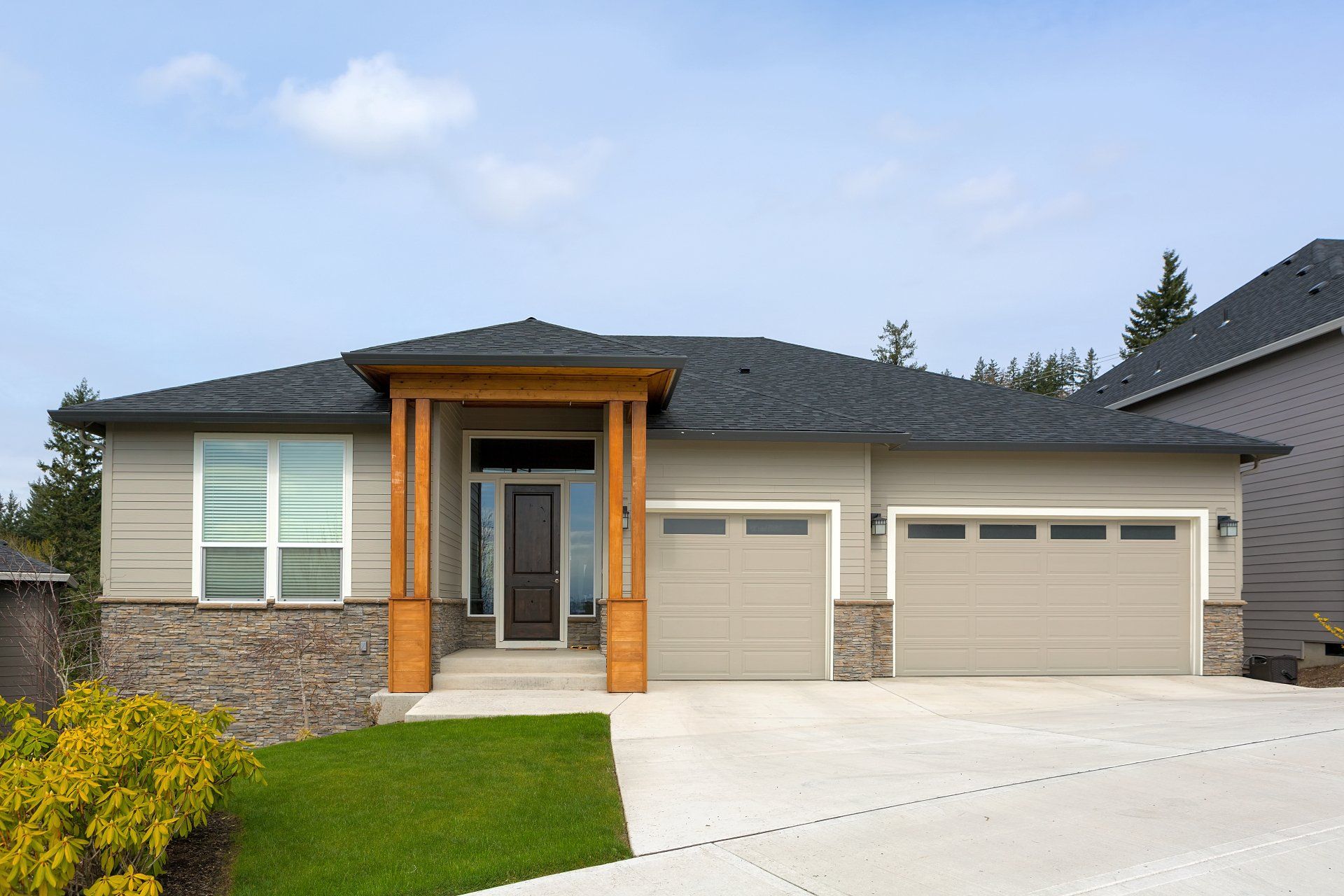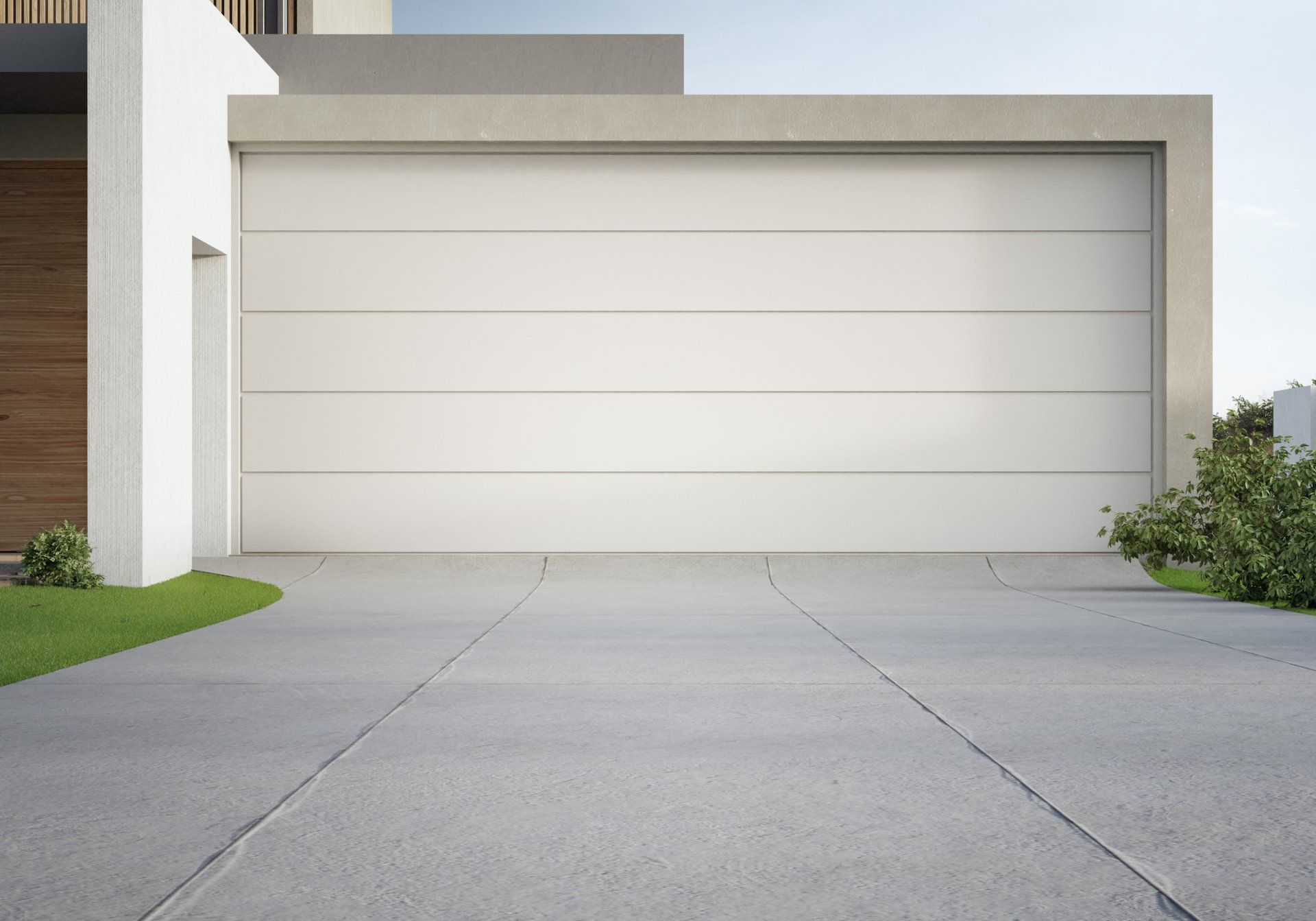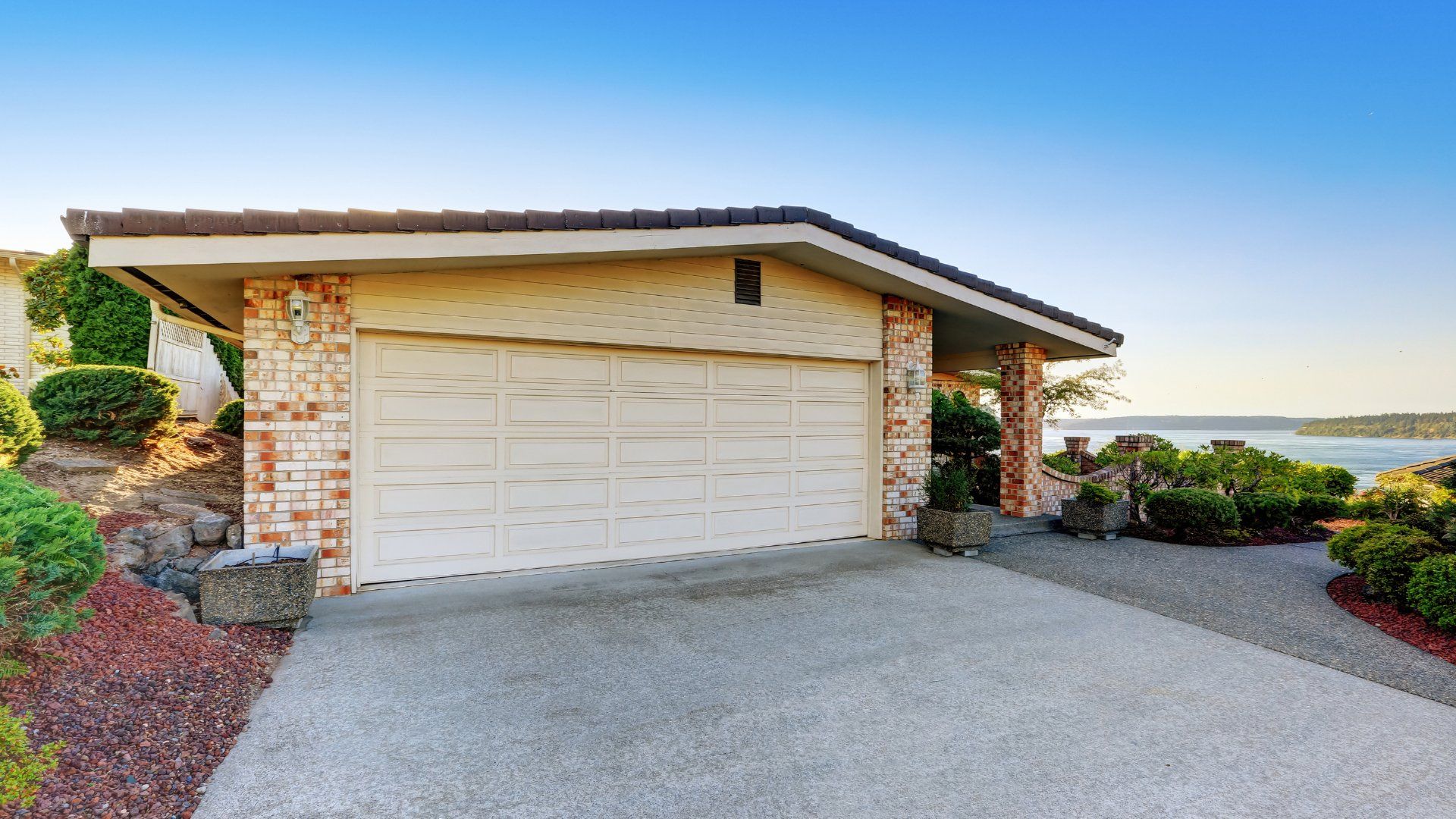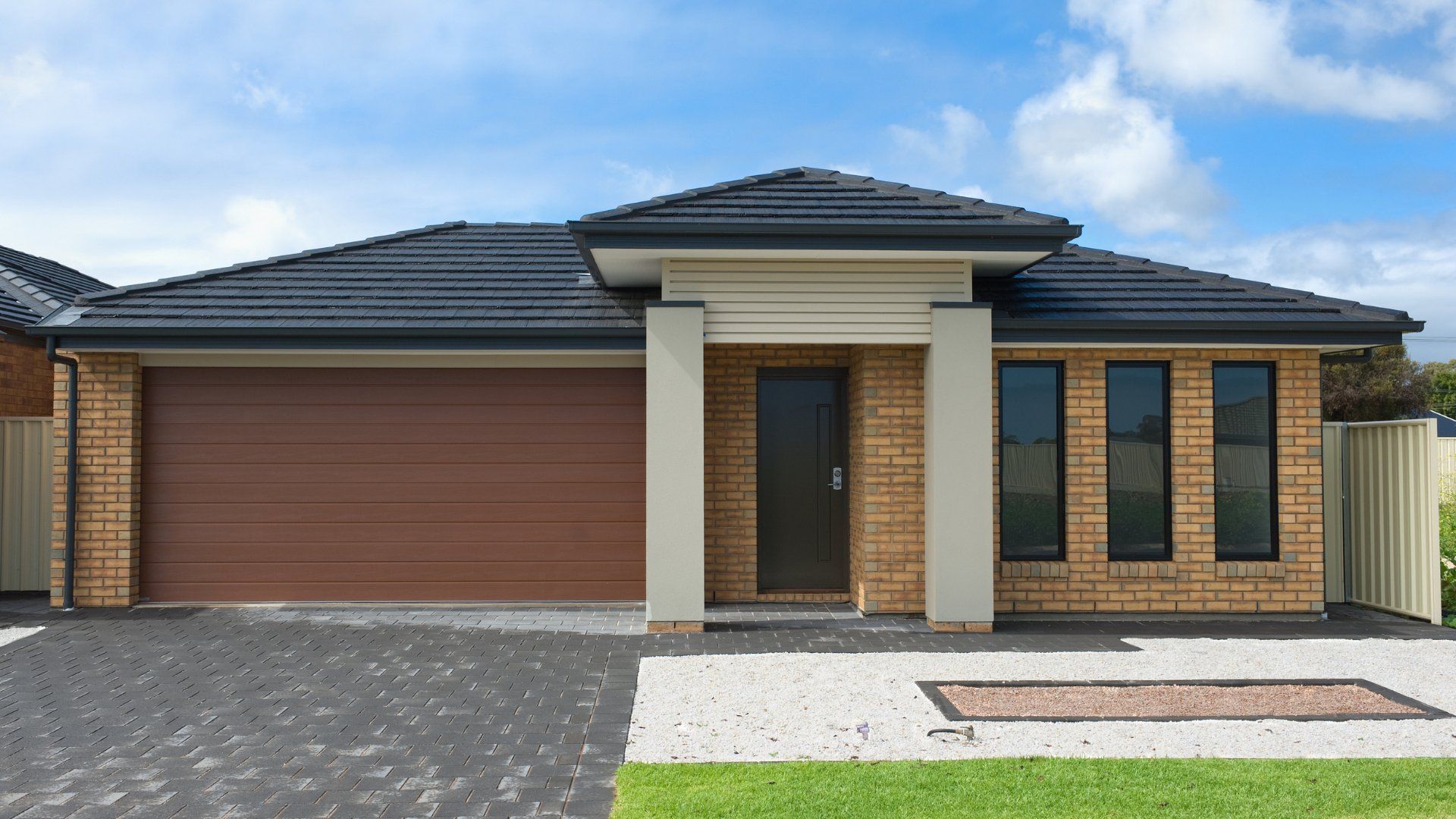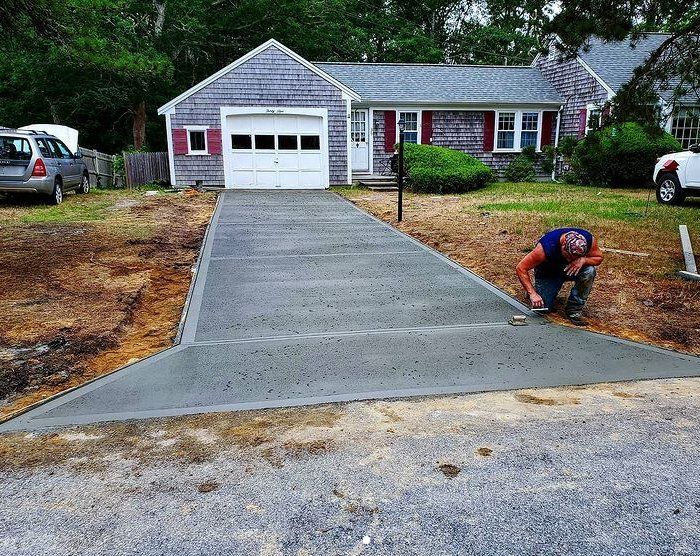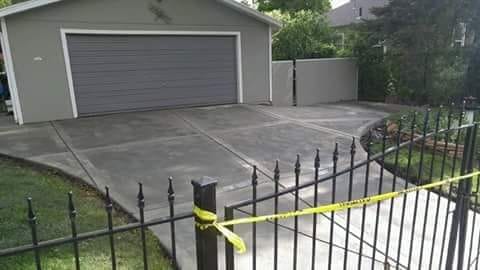Concrete is one of the best materials for building your driveway. Not only does it last a long time, but concrete also offers strength and durability that can't be found with other materials like gravel or asphalt. And because this strong yet long-lasting mix requires fewer upkeep requirements than others do - such as regularly filling in potholes--you could end up saving money down the line by choosing one type instead of another when considering which path to take.
If you want to make your concrete look like it is straight out of an architecture book, we have the tools for that. You can either paint or stamp (or both!) with our paints and graphics which will give any surface instant personality.
Here are a few more pros and cons of having a concrete driveway:
Concrete as a Building Material:
The concrete we know and love as the building material for construction projects such as roads, bridges or buildings can be mistakenly thought to only have one ingredient: cement. In reality though, this term refers just to one component of these durable substances; powders made from limestone (a type of rock) with clay added in order help it harden into something stronger than dirt! The end result? A stone that is natural-looking and durable.
When you need a specific kind of concrete, it's important to understand that there are many different types and each can be mixed with varying amounts or kinds sand. Building driveways? Choose aggregate made from stones such as gravel-sized particles - they provide more traction than smooth surfaces do but less aesthetically pleasing material when finished; for decorative flooring on top try fine grain aggregates which give an even finish without any imperfections
For typical driveways, concrete is formed with gravel sized aggregates (e.g., pebbles) but for finer work and smoother finished surfaces newer methods use sand such as silica flour particles which are more expensive than regular ones due to their ability help wet cement set up faster.
Concrete is a powerful construction material that can be poured into any shape or size. Once mixed, it will harden for months with only minimal curing before use--though some types of buildings might need more time to set properly depending on their uniqueness requirements!
The addition of metal wire or rebar to concrete is a common strengthening technique that creates stronger, more durable structures. Other ingredients can also be added during mixing such as agents that improve strength and slow drying time for improved performance in various applications, including driveways!
Installation
A concrete driveway is a great way to add value and curb appeal for your home. Though it's not the most difficult project, there are some things that you should know before getting started so as not leave with regrets later on down the road because this type of construction can be challenging. We know you have a lot on your plate, which is why we recommend letting professionals take care of this project from start-to finish. We'll excavate for new formwork (which will give shape) and prepare forms before pouring with just enough precision so that everything goes smoothly in site.
The first step to installing a driveway is removing any grass and other vegetation. You should also have stable soil for your foundation, so it will not settle too much during installation or after completion of the project. For a durable, lasting driveway installation use class-5 gravel mixed with steel wire grid or metal rebar to strengthen it. This way you can drive cars on your new paving project without worrying about their weight causing any damage.
With a concrete pour, your drive is now ready for quick installation. This process involves several people working quickly to fill forms with wet cement as it's delivered from an onsite mixer and finish up that surface afterword by safely placing expansion joints at controlled places throughout so we can ensure our work remains strong in harsh conditions.
Finishing the concrete is an important part of making sure that it looks good and lasts for years to come. After finishing, crews use tools like rollers or trowels by drawing cement toward their top layer until they create a smoother texture. Floaters are the ultimate professionals when it comes to smoothing out your concrete. However, they need skill and patience in order to not over-soak or under apply their solution which could weaken any slab underneath them with too much strength applied by themselves - but not enough means that you won't get a nice smooth finish at all.
Curing is the process of hardening and strengthening a concrete driveway. The material does not dry out; instead, it goes through chemical changes that make it more durable or "hard." This curing procedure must take place under specific conditions to ensure optimal results.
You should wait at least a week before driving on your new driveway and make sure you don't park heavy vehicles on it for about a month.
Maintenance
To ensure a long life, you should keep your concrete driveway clean and sealed. A good scrubbing with hose water will usually handle the cleaning while sealant adds an extra layer of protection that can last up to three years before needing another application! It's best applied in fall when it does its job most effectively so don't forget about these important steps for maintaining their beauty year-round. Road salts and harsh winter weather can wreak havoc on our pavements, but you don't have to worry about that with this simple step.
Longevity and Cost
The durability of a driveway is determined by how well it has been built and maintained. These surfaces can typically last 25-50 years, but this will depend on the quality construction as well as care taken with your project during its lifetime. A concrete driveway is a great way to add curb appeal and durability, which can last your home for years. An installed 16x38 footer will cost about $7500 on average- that's not including any demolition work needed if there was an old slab already in place. Stamped and coloured concrete can add additional costs as well.
